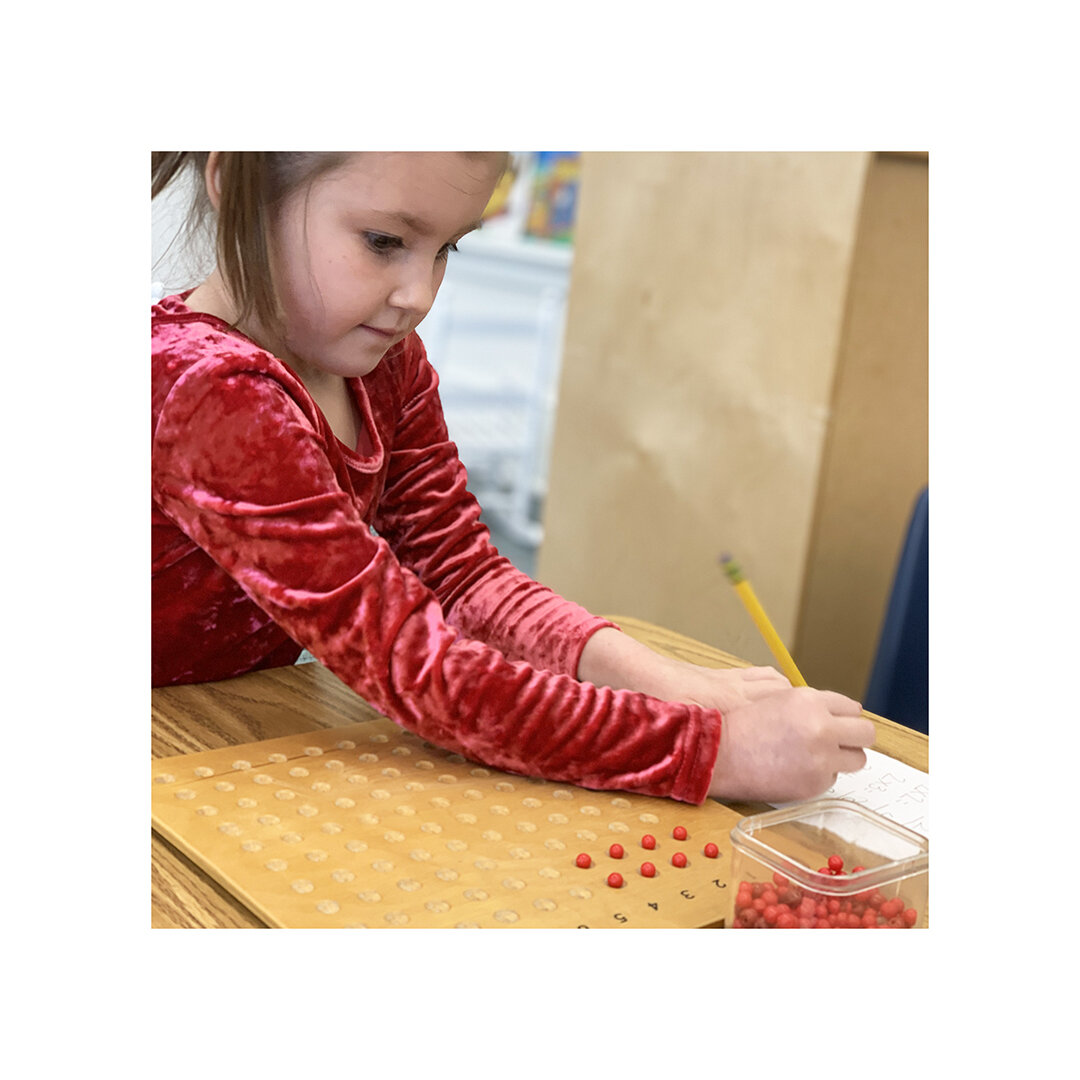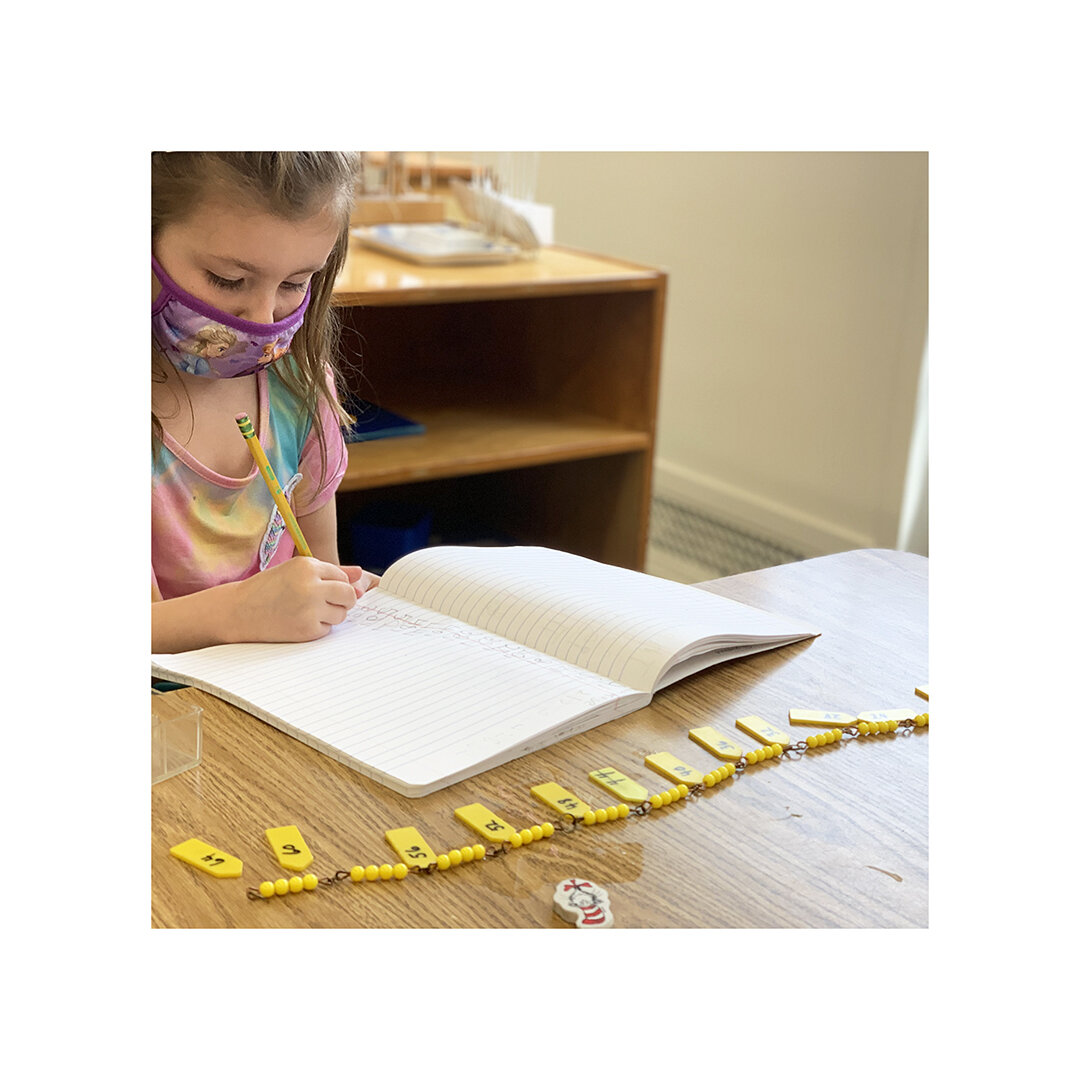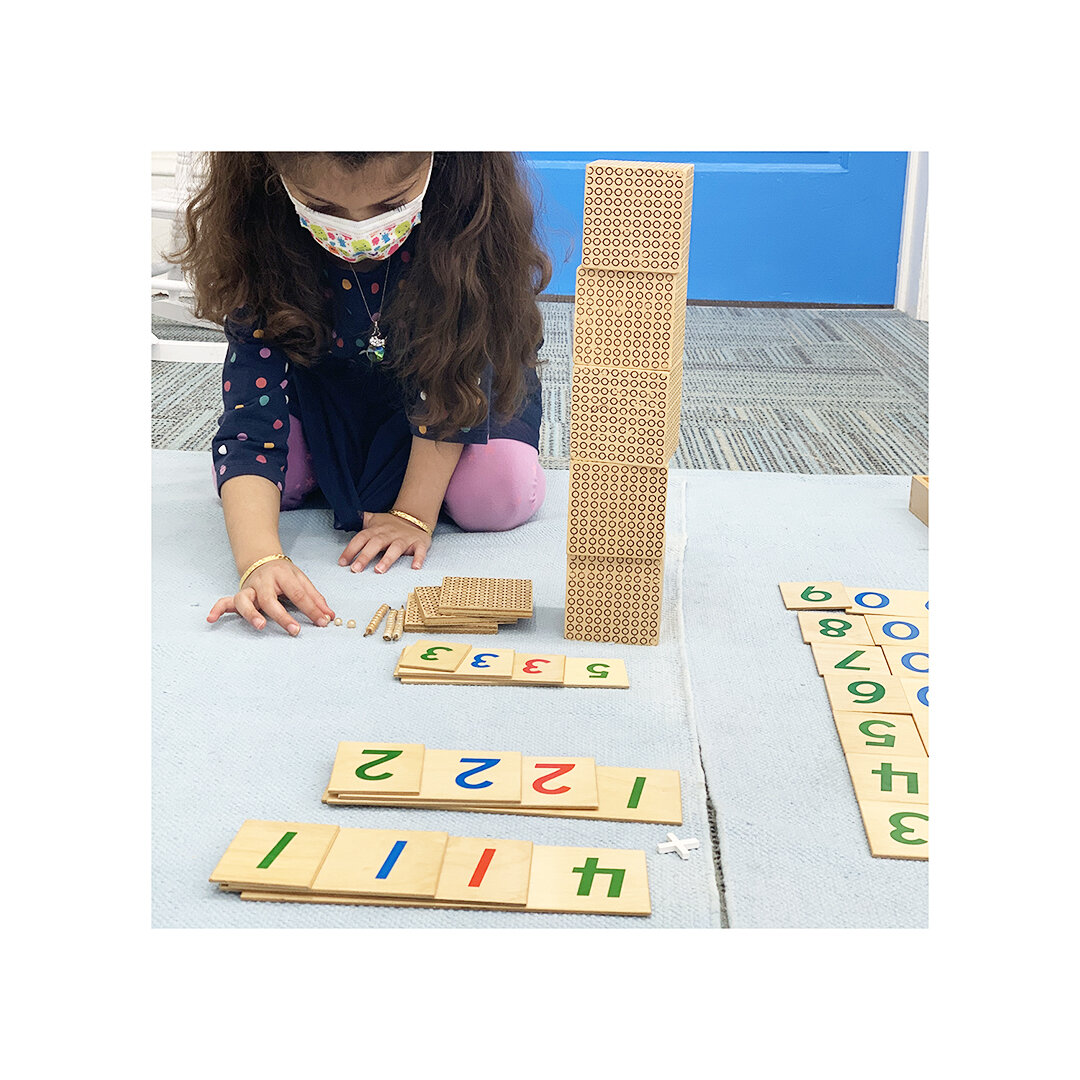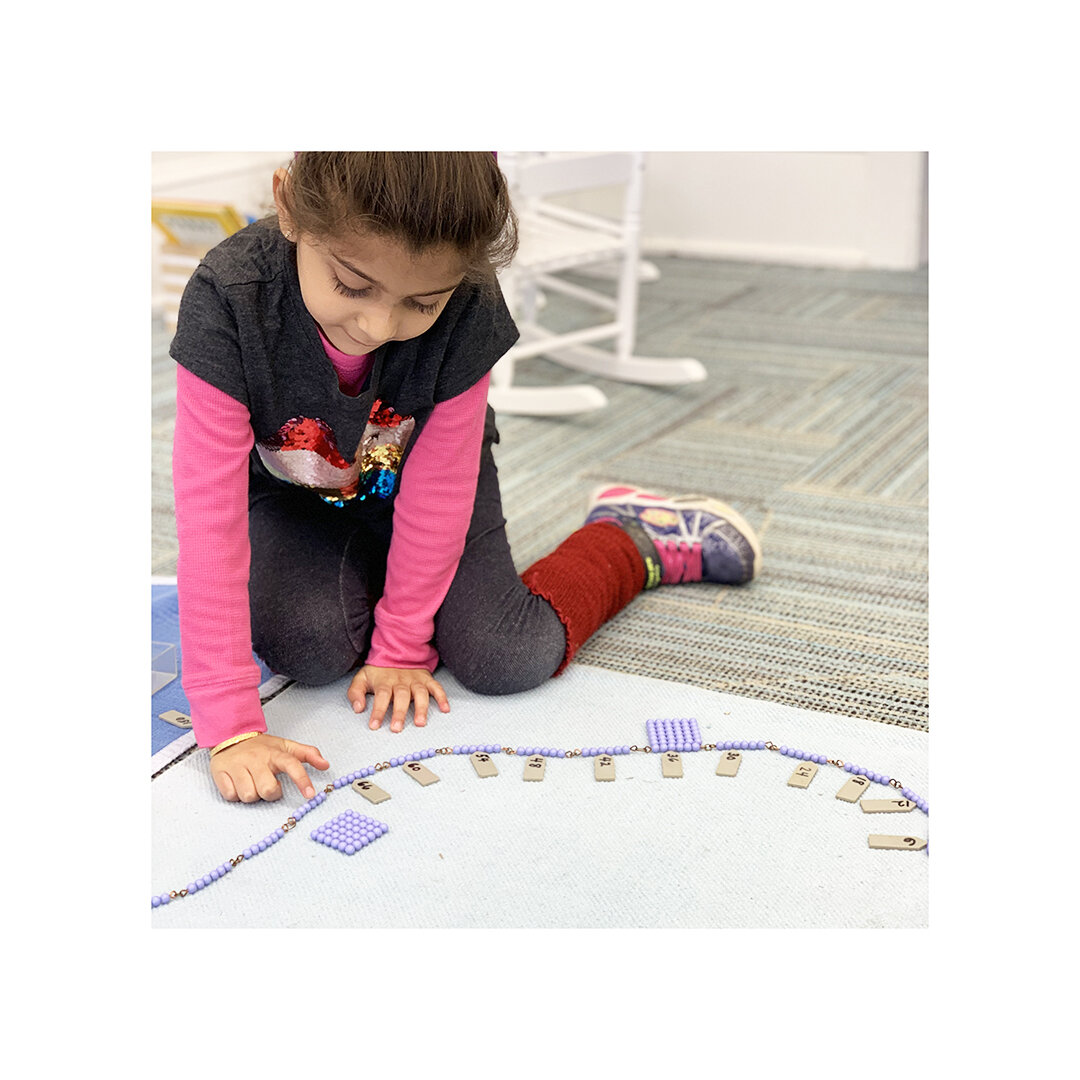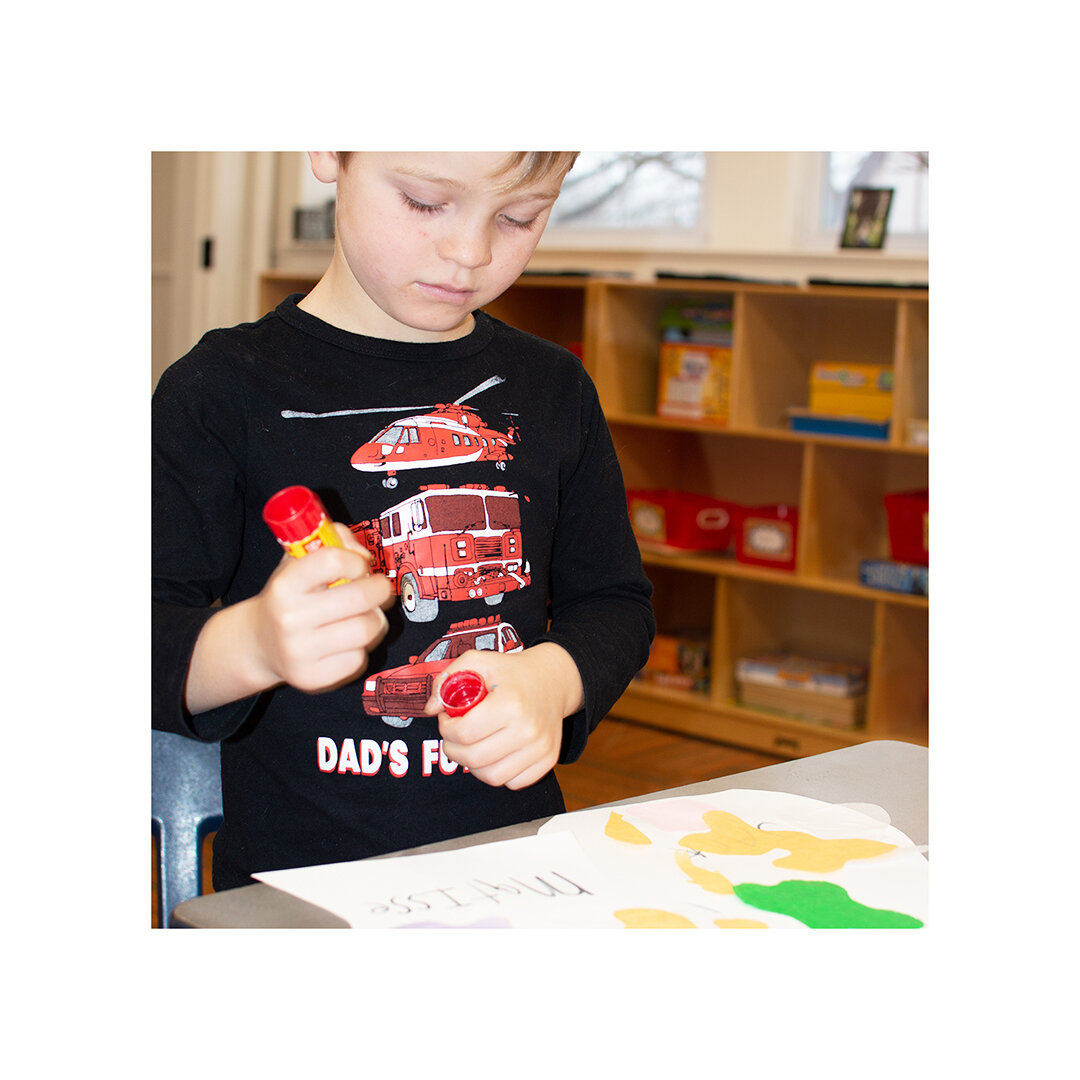Why stay at Neshaminy Montessori for the elementary years? The answer is simple. Children who continue Montessori education into their school aged years become innovative and pioneers of their own learning process. Individualized lessons plans and self- directed materials allow your child to take ownership of their developmental process, thus cultivating a love for learning because they are given the chance to be actively involved in their curriculum.
Montessori elementary classrooms are fundamentally different from traditional elementary school rooms. In fact, they are so different that it can be hard to understand how they work, and why they are so great at helping your child thrive.
Here are a few key differences between traditional and Montessori Education:
Teachers act as guides on the side rather than lecturers. In most traditional education classrooms, the students are taught through whole class instruction and students work through the same curricula at the same pace. In contrast, Montessori classrooms provide instruction individually or in small groups. The teacher carefully observes her students and introduces concepts and lessons to meet each child’s academic needs and interests. For example, in a Montessori classroom an advanced student will be given opportunities to learn concepts above their grade level. It is not uncommon for an advanced second grader to learn a third-grade math concept if he or she is ready. At the same time, a child who struggles can get the extra support he or she needs, without the negative effect on his self esteem due to the individualized lessons. There is no competition in Montessori. Each child learns at his/her own pace. There is no one size fits all curriculum, the Montessori philosophy recognizes this and caters to each child’s needs, wants, and developmental level.
Children learn from hands on manipulatives rather than textbooks. Most traditional schools teach curriculum using textbooks and worksheets. Montessori classrooms present curricula using hands on carefully crafted materials. Dr. Montessori believed the elementary years were pivotal because children begin thinking from concrete to abstract. The elementary materials present abstract concepts such as multiplication, division, and the decimal system through a concrete material to provide a full understanding of an abstract thought. Through the use of the materials, each child acquires the skills to think about things and figure them out, rather than focus on rote memorization.
Growth as respectful citizens within society. Much of the classroom management techniques are intertwined within the grace and courtesy lessons that are unique to Montessori classrooms. These lessons are designed to teach the children how to follow polite social norms. Older students in the classroom assist with modeling appropriate manners to their younger peers, which is one of the many benefits of a Montessori multi-aged classroom. The lessons are first taught intentionally, but then consistently modeled by all adults with expectations for the children to follow. Children thrive socially when given the opportunity to teach appropriate behaviors to their peers.
Considering a Montessori education for your elementary child is an easy decision. Offering a thriving learner an opportunity to grow and develop academically, socially, and cognitively in a manner which best suites his or her individual learning style is what every child deserves. See what Montessori supporters say:
· Children advance quickly. Parents who love the Montessori approach rave about how quickly even young children advance in terms of self-esteem and academic abilities. They also say that Montessori-educated children tend to be self-motivated, independent learners.
· Children develop and learn at their own pace. Children aren’t compared to one another or forced to compete, be it for rewards, accolades, or attention. Instead, they’re encouraged to collaborate and support one another.
· Teachers respect children and encourage independence. Children are left to themselves; grown-ups rarely interfere with kids’ activities, respecting children’s intelligence and ability to master many real-life skills.
· It’s calm and inviting. Parents like that children spend their day in a calm, orderly environment; children aren’t stressed out, but inspired and happy at school.


